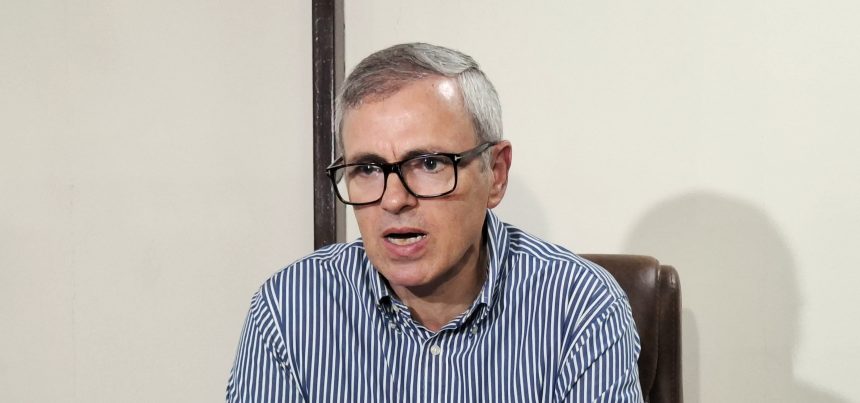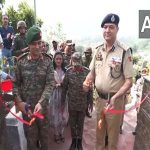Srinagar, July 25: Chief Minister Omar Abdullah today chaired the 22nd meeting of the Jammu & Kashmir Building and Other Construction Workers Welfare Board (JKBOCWWB) at the Civil Secretariat, with a comprehensive review of the Board’s welfare programs and the approval of new initiatives aimed at improving the lives of construction workers and their families across the Union Territory.
While appreciating the strides made by the Board, the Chief Minister lauded its success in extending welfare coverage to over 2.85 lakh active construction workers. He underscored the importance of ensuring that the delivery of benefits remains transparent, timely, and targeted. Stressing inclusivity, he directed officials to widen the outreach mechanisms, streamline application processes, and guarantee that no eligible worker is left out of the benefits framework.
Calling for a broader and more inclusive definition of ‘construction worker,’ the Chief Minister emphasized the need to bring all vulnerable and unorganized sector labourers under the welfare net. He urged the Board to explore policy interventions aligned with national best practices to maximize coverage and enhance financial security for the working class.
The meeting was attended by Deputy Chief Minister Surinder Kumar Choudhary, Additional Chief Secretary Jal Shakti Shaleen Kabra, Additional Chief Secretary to the Chief Minister Dheeraj Gupta, Principal Secretaries of Finance, PWD (R&B), and PDD, as well as Commissioner Secretaries from Housing & Urban Development, Social Welfare, and Cooperatives departments. Also present were Secretary Labour & Employment, Secretary Law, Director General Budget, and representatives of Bhartiya Mazdoor Sangh and Bhartiya Dastkar Union. Senior officials from the Planning Department and other concerned departments participated as well.
During the meeting, Secretary Labour & Employment Kumar Rajiv Ranjan gave a detailed presentation outlining the Board’s achievements, ongoing policy reforms, and financial performance. He highlighted that the Board continues to function in accordance with the BOCW (Regulation of Employment and Conditions of Service) Act, 1996, and has been providing a wide spectrum of benefits to registered construction workers. These include ex-gratia relief in cases of accidental death, financial support for both temporary and permanent disabilities, and educational assistance for the children of workers. The Board also provides one-time scholarships of ₹50,000 to students securing 90 percent and above in Class 10 and 12 examinations, in addition to marriage and maternity assistance, aid for chronic illnesses, and funeral expense coverage.
To ensure efficiency and transparency, the Board has undertaken significant digital reforms. These include the adoption of 100 percent Direct Benefit Transfer (DBT) for all financial assistance, Aadhaar-based verification to eliminate fraudulent registrations, and the creation of an online portal for registration and renewal services. OTP-based authentication and SMS alerts have been introduced to ensure that workers receive timely updates regarding their applications and entitlements.
The Board, which generates income through cess collection and interest accruals, currently maintains a corpus of ₹1,082.58 crore in fixed deposits and savings accounts across various banks.
Several important decisions were taken during the meeting. These included the approval of scheme-wise budget proposals for the financial years 2024–25 and 2025–26, as well as the transfer of ₹17.24 crore to the Union Territory of Ladakh in accordance with SO 339 dated October 30, 2020. The audited accounts for the financial years 2022–23 and 2023–24 were also approved and will be forwarded to the Accountant General for certification.
The Board gave its nod to integrating its welfare initiatives with broader social security and financial inclusion schemes to maximize the impact of benefits. In a major push toward digital governance, the issuance of smart cards to all registered workers was approved, with an allocated budget of ₹10 crore.
To improve occupational safety, the Board sanctioned ₹60 crore for the distribution of Personal Protective Equipment (PPE) kits and tools, with a special focus on workers in rural areas. Acknowledging the need for skill development, the Board approved short-term training programs for 10,000 workers under NSDC norms, with a budget of ₹10 crore.
Given the encouraging response to the meritorious scholarship scheme, the Board decided to revise its framework to introduce merit-based slabs at the district level, while maintaining the minimum eligibility threshold at 90 percent. The issue of long-pending staff regularization was also taken up, with a directive issued to the concerned committee to finalize recruitment rules in consultation with relevant departments within six months.
In his concluding remarks, Chief Minister Omar Abdullah reaffirmed the government’s commitment to ensuring that welfare benefits reach every deserving construction worker. He called for forward-looking reforms, robust monitoring, and inclusive policy-making tailored to the needs of workers, particularly those residing in remote and underserved areas of Jammu and Kashmir.










